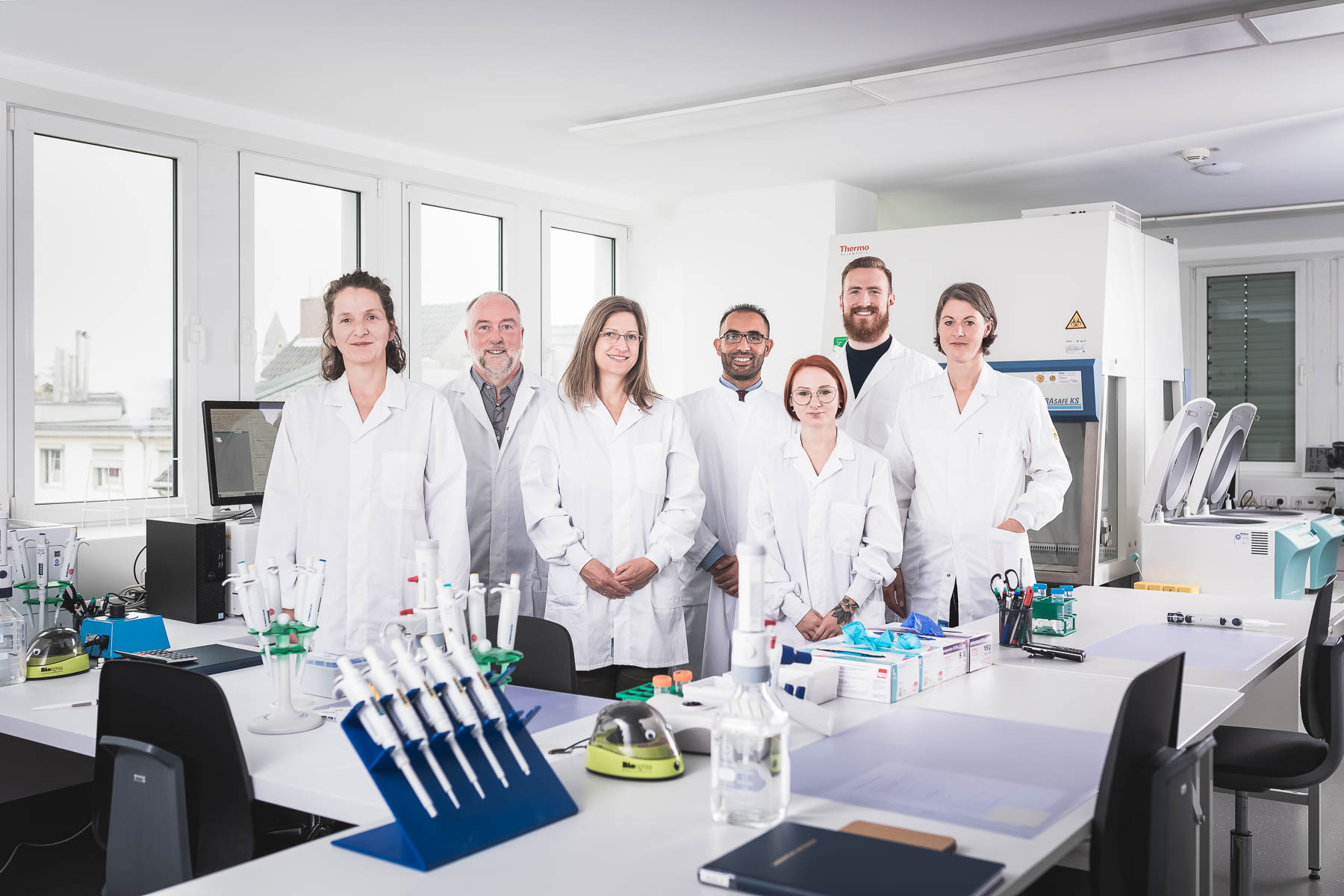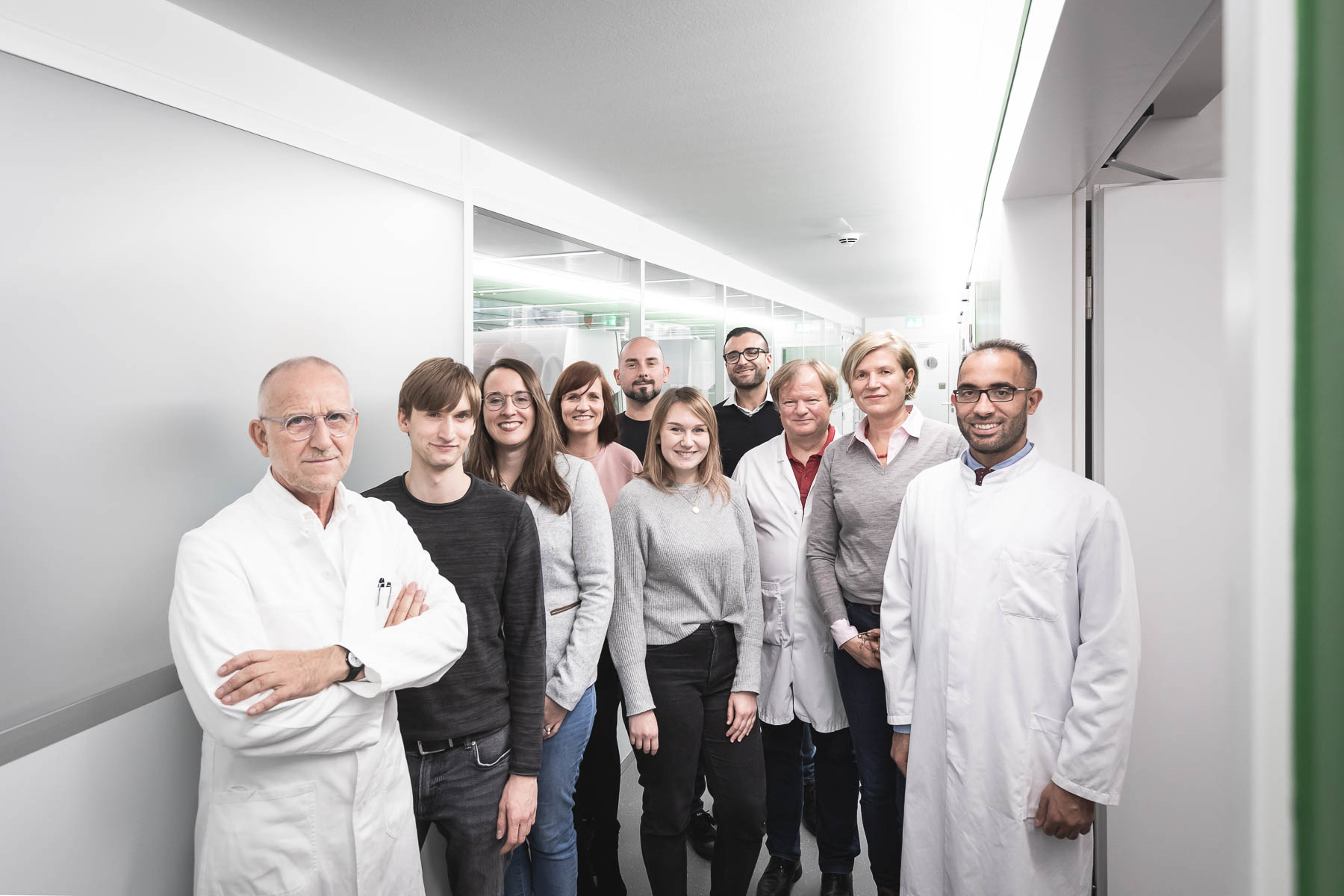For the proper planning and realisation of an individualised immunotherapy, precise knowledge about the state of the immune system and the characteristics of the tumour of each patient is required. The IOZK diagnostic laboratory can provide this information thanks to elaborate immunological and molecular genetic analyses from blood samples.
Networking with other research institutions and contributions to the scientific discourse (including publications in international journals, lecturing activities at specialist congresses, etc.) are of great importance to the IOZK. The laboratory therefore provides the opportunity for visits by guest physicians and the mentoring of international scientists; e.g. in the context of doctoral, master’s or bachelor’s theses.
Immunodiagnostics
The cells of the immune system have diverse and specific functions. They are assigned to different groups (e.g. B-lymphocytes, T-lymphocytes, natural killer cells, etc.), which in turn are divided into subgroups (e.g. T-helper cells, regulatory T-cells, cytotoxic T-cells or memory T-cells). These groups are distinguished by characteristic “signatures”, certain combinations of surface antigens. Thanks to these, each immune cell subgroup can be distinguished by means of immune phenotyping and assessed in terms of their numerical composition (“quantitative cellular immune status”).
On the basis of certain activation markers and functional testing, it is also possible to evaluate the functionality of relevant immune cells (“qualitative cellular immune status”).
Tumour diagnostics (“Liquid Biopsy”)
“Liquid Biopsy” provides a modern and personalised method for monitoring tumours. As only a blood sample is required for examination, a tumour biopsy can be avoided. This makes this analysis particularly attractive because obtaining biopsies is often technically impossible or, in unfavourable cases, may lead to complications. Liquid biopsy is even possible if the tumour cannot be reached for biopsy, or if the exact localisation of a tumour or metastasis is not known.
“Liquid biopsy” can qualitatively and quantitatively detect DNA from necrotic tumour cells, so-called circulating tumour DNA (ctDNA), in the blood. This molecular genetic method (“duplex sequencing technology”) is extremely sensitive and can detect the smallest traces of DNA. It permits the assessment of the course of therapy and the early detection of recurrences, sometimes up to 6 months before they can be visualised in imaging procedures (MRI, CT).
Translational oncology at the IOZK
The implementation of new scientific findings into clinical practice is referred to as translation. In order to be able to offer innovative diagnostics and therapy at the IOZK, new methods are continuously introduced, internally established and meticulously evaluated. Existing methods are kept up-to-date as well, ensuring ongoing improvement. Our goal is to offer the best and safest treatment available for each individual patient, even if it is not yet available in daily routine on a wide scale.

